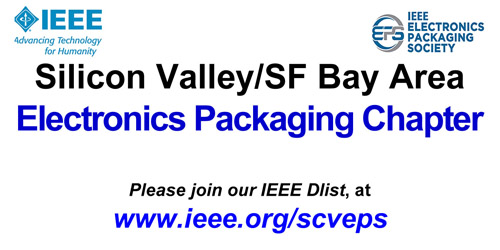Submicron Nanosecond Thermoreflectance Imaging for Thermal and Failure Analysis
-- thermal imaging, fine-geometry, static/dynamic, high-resolution, thermoreflectance, near-ultraviolet to infrared, examples ...

Performance requirements for today’s semiconductor and optoelectronic devices are leading to shrinking geometries, more complex 3-dimensional structures, and new materials. High temperatures, hot spots and temperature spikes can have a major impact on reliability. It is essential that one have a thorough understanding of static and dynamic thermal performance under operating and static conditions. This has traditionally been complex, time consuming, and often lacked the resolution required to detect thermal anomalies that could lead to early device failures. Fortunately, advances in thermal imaging techniques that combine the benefits of thermoreflectance-based analysis with illumination wavelengths from near-ultraviolet to near infrared coupled with infrared thermography can support thermal, spatial, and transient resolution consistent with today’s advanced complex device structures and shrinking geometries. In addition, equipment has advanced to considerably reduce the time and cost to get accurate results. Many examples will be shared to fully illustrate the device thermal behaviors that can be detected with these advanced thermal analysis techniques.
Date and Time
Location
Hosts
Registration
-
 Add Event to Calendar
Add Event to Calendar
Loading virtual attendance info...
- SEMI World Hdqtrs
- 673 S Milpitas Blvd
- Milpitas, California
- United States 95035
Speakers
 Mo Shakouri of Microsanj Corp.
Mo Shakouri of Microsanj Corp.
Performance requirements for today’s semiconductor and optoelectronic devices are leading to shrinking geometries, more complex 3-dimensional structures, and new materials. High temperatures, hot spots and temperature spikes can have a major impact on reliability. It is essential that one have a thorough understanding of static and dynamic thermal performance under operating and static conditions. This has traditionally been complex, time consuming, and often lacked the resolution required to detect thermal anomalies that could lead to early device failures. Fortunately, advances in thermal imaging techniques that combine the benefits of thermoreflectance-based analysis with illumination wavelengths from near-ultraviolet to near infrared coupled with infrared thermography can support thermal, spatial, and transient resolution consistent with today’s advanced complex device structures and shrinking geometries. In addition, equipment has advanced to considerably reduce the time and cost to get accurate results. Many examples will be shared to fully illustrate the device thermal behaviors that can be detected with these advanced thermal analysis techniques.
Biography:
Dr. Mo Shakouri is a Silicon Valley entrepreneur and international executive with over 25 years of experience in the communications and electronics industry. He serves as Innovation Partners Institute Fellow, at Purdue Research Foundation, Dir of community Broadband Initiative at JointVenture Silicon Valley, Chairman of the AeroMACS Forum, and is Founder and CEO of Microsanj and Telewave.io. Dr. Shakouri earned his Ph.D in Electrical Engineering & Applied Physics from Stanford University, and a BSEE from San Jose State.

